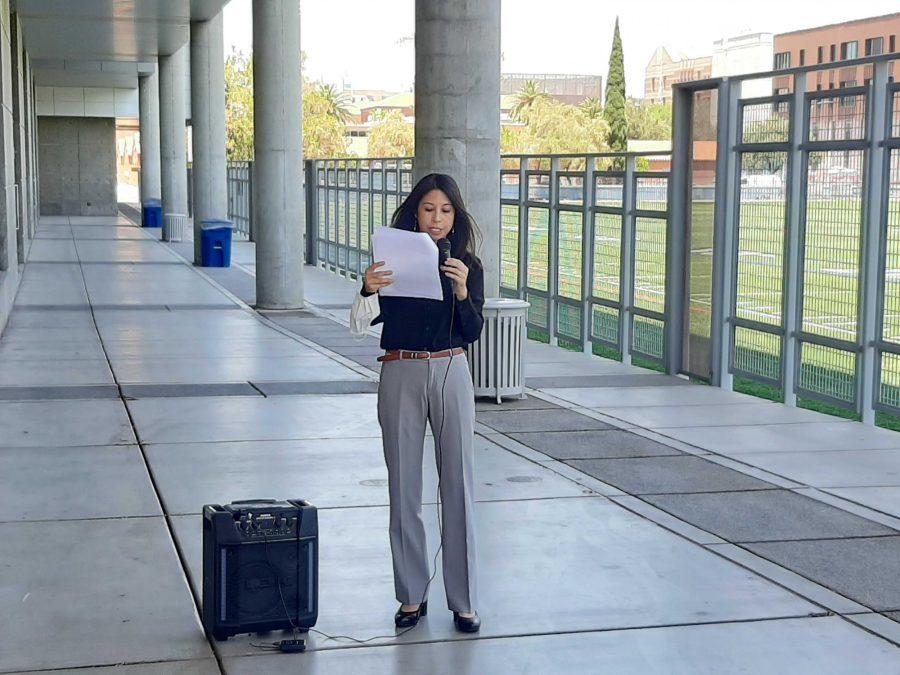The Coalition for Academic Justice at the University of Arizona delivered an open letter last week to UA President Dr. Robert C. Robbins regarding their concerns with the administration’s reentry plan.
“CAJUA is asking senior leadership to consider the options proposed in the Eller College of Management’s alternative financial plan,” said Celeste González de Bustamente, a member of the CAJUA Steering Committee.
The open letter has now been signed by more than 1,400 graduate students, staff, faculty and other supporters. From the signatures gathered, over 43% were students, almost 39% were employees, 22% were family and friends of UA students and employees, 19% were community members and 17% were alumni, according to a CAJUA press release.
The open letter stated “The latest plan presented by UA President Robbins fails to require compliance with public health migration efforts, specifies that 50% of courses be offered face-to-face, and invites thousands of students to come on campus for classes, activities, and dormitory living.”
The letter said reentry would be dangerous for students, employees, families and southern Arizona generally, according to “Scientific data and public health best practices.”
CAJUA also said “complete and accurate data and projections from expert sources”, “an understanding of COVID’s differential impact on Black, Indigenous, and People of Color”, “adequate hospital resources”, “testing availability” and “development of treatment and prevention methods” must be in place for reentry to be safe.
Provost Liesl Folks sent out an email last week about the three stages of phasing into face-to-face classrooms. The first phase is that on Monday, Aug. 24, where only essential in-person courses and those scheduled for outdoor spaces will be held in-person.
The next stage is adding in-person and flex-in-person classes with 30 or fewer students onto campus and the final stage is re-introducing larger in-person classes on campus. The introduction of each subsequent stage depends on COVID-19 conditions in the Wildcat and Tucson community, Folks said in the email.
“The CAJUA finds the phased reentry plan announced by Folks to be incomplete and vague,” CAJUA said in a press release along with the letter.
The UA Eller College of Management’s plan proposes using other tools aside from pay cuts and layoffs. The press release stated, “Top administrators have yet to acknowledge Eller’s plan.”
RELATED: Coalition For Academic Justice at UA announces plans to unionize
The alternative plan by Eller College Faculty revolves around a bond issue coupled with the use of some cash reserves.
“We believe that using some combinations of the cash and investment reserves and debt is a far better option than real economic costs the University will incur from losing their faculty and staff from the furlough and pay cut plan,” the Eller plan said.
CAJUA explained in the open letter that they recognize that some people need to be on campus. These people include: “researchers requiring laboratory facilities; instructors and students taking courses with an experimental component; facilities staff; library workers; agricultural extension employees across the state; and students who lack resources for remote work.”
The letter said: “CAJUA extends the collective resources of its staff, students, and faculty members toward collaborating with the [Senior Leadership Team] to create a safe environment for UA’s 60,000 members and the broader community.”
Follow Jillian Bartsch on Twitter









